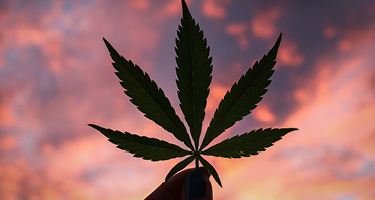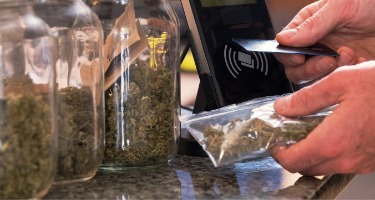In the past few years, there has been a strong push at the local and State levels to de-criminalize or make exceptions for certain uses of marijuana or products derived therefrom. Many States have enacted laws either completely allowing the use of marijuana or allowing for the use of marijuana-derived products for medical purposes. However, even in states that have de-criminalization or medical use allowances, certain individuals, including truck operators, should be wary of using marijuana or cannabis-containing substances.
FEDERAL REGULATIONS REGARDING MARIJUANA
First and foremost, marijuana is still illegal at the Federal level. While it may be unlikely that the federal government would prosecute a lone individual not involved in the drug trade for a marijuana offense, you should not be too careful when it comes to illegal substances—especially if you are carrying any quantity of these materials across state lines.
Additionally, if you test positive for marijuana, you may be liable for prosecution for driving under the influence. DUI is typically harder to prosecute when marijuana is involved than when you have had too much alcohol. However, police officers are skilled at writing their reports and search warrants in such a way to signal the court that they are positive you had been smoking marijuana prior to an incident. If police obtain a blood test, you could be facing misdemeanor or felony prosecution, depending on the jurisdiction, the amount of substance involved, and your own prior criminal history.
THC BARRED UNDER FEDERAL MOTOR CARRIER SAFETY REGULATIONS
Perhaps most likely to lead to trouble for the average truck driver would be testing positive during routine review by a medical review officer (or “MRO”). While current guidelines for federal prosecutors would allow most people to partake in medical marijuana uses per state laws, this forbearance does not apply to testing of drivers under the Federal Motor Carrier Safety regulations. THC is absolutely barred under the drug and alcohol testing programs for those with a CDL. A MRO is allowed generally to accept a medical exception or reason for some positive test results. 49 C.F.R. §40.137(a). However, a MRO is not allowed to report as negative a test demonstrating the presence of THC (a Schedule I substance) based on state-allowed medical use. 49 C.F.R. §40.151(e).
The U.S. Department of Transportation has noticed its intent to uphold these regulations, despite the loosening of the prosecutorial standards. The Department has specifically stated:
We will not change our regulated drug testing program based upon these guidelines to Federal prosecutors.
The Department of Transportation’s Drug and Alcohol Testing Regulation – 49 CFR Part 40, at 40.151(e) – does not authorize “medical marijuana” under a state law to be a valid medical explanation for a transportation employee’s positive drug test result.
This notice can be found here, last updated November, 2019.
THE UPSHOT FOR TRUCK DRIVERS
Truck drivers should be wary before using medical marijuana or similar products, such as hemp-derived items and/or CDB oils. While the airwaves are full of ads suggesting these products are a natural cure to many ailments and that you will not get “high,” you cannot be sure of the level of THC in each product and whether it will cause you to violate federal regulations. You might just wind up in additional drug testing, be forced to take classes or counseling, or potentially lose your CDL altogether.























